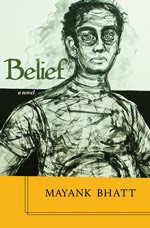I used to think that writing was, well, if not easy, not difficult either.
That was a long time ago. Then, a couple of years ago, I embarked upon a foolhardy mission to write a novel.
Euripides was right. Those whom Gods wish to destroy, they make them mad first.
I shall skip a reiteration of how my short story turned into a novel, and all the momentous events that sort of gave a new direction to life, and a fresh impetus to my enthusiasm.
They seem important only to me.
After two years of writing, I am about to complete the first draft of a novel – a modest 60,000 words or so.
I should be happy, if not overjoyed. I am not.
I’m unsure and wary, and realise that I need to do a million things more with the draft, before I can say that the novel is worthy of being read by others who are not my friends and well-wishers.
During these two years, I have had tremendous support from published writers, both established ones and the about-to-be established ones.
They empathise with me – a newbie on the block. They cheer me on as I struggle, much as a newcomer to Canada from the tropics does, learning to walk on the snow, wearing nine layers of warm clothes and heavy snow boots.
It is the 'been there, done it' syndrome, I guess.
They tell me that my modest achievement, which seems so great to me, is in reality the easy part. From next month, I embark upon the harder task of re-writing. And I have no idea when that process will end, if ever.
In the past, I have enjoyed reading good writing, especially good prose writing both fiction and non-fiction, in a general sort of a way.
Over the last two years, writing has helped me evolve as a reader. I pay attention to what I read, to the way in which a writer captures an emotion, a feeling, and the felicitous use of an expression, a turn of phrase, to convey precisely a mere nuance.
Let me illustrate this by an example from MG Vassanji’s The In-Between World of Vikram Lall
The train from Kisumu had come in late, and so we left at a little before dawn from Nakuru, which was as well because we could see more, though the Kisumu passengers were irate for having to wake up from their rocking slumbers. We reached Naivasha as dawn was breaking beyond the mountains.
How can I describe that feeling of looking out the sliding window above the little washbasin, as the small second-class cabin jostled and bumped along the rails, and taking in deep breaths of that cool, clean air and, simply, with wide hungry eyes absorbing my world. It was to become aware of one’s world, physically, for the first time, in a manner I had never done before, whose universe had encompassed our housing estate and my school, the shop and my friends, the tree-lined street outside that brought people in and out of our neighbourhood.
That scene outside the train window I can conjure up at any time of the day or night; I would see, feel, and experience it in similar ways so frequently in my life; in some essential way it defines me. This was my country – how could it not be?
I keep the book down and sigh. Will I achieve such depth, ever?
Writing is not easy. In fact, it is a struggle.





